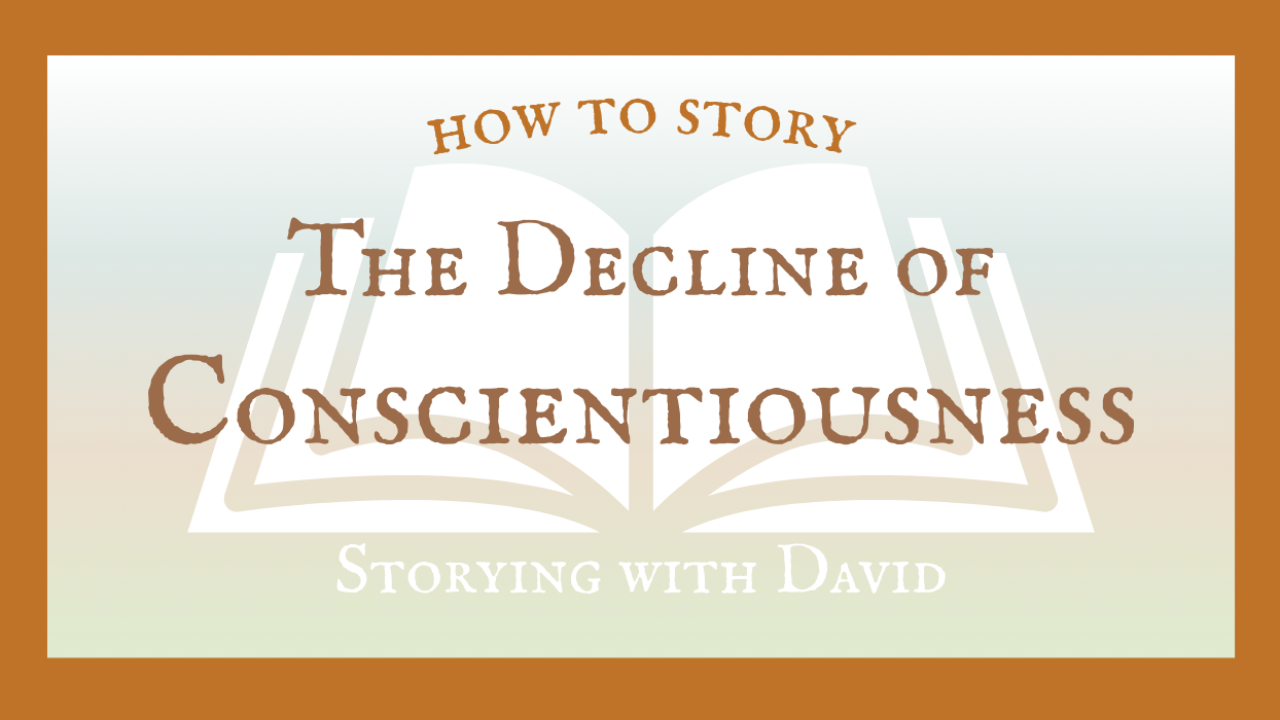Storytelling and the Decline of Conscientiousness
Sep 19, 2025
“Over the past two decades, researchers have documented a troubling decline in conscientiousness—the blend of self-discipline, reliability, persistence, and sense of duty that often predicts positive life outcomes more powerfully than intelligence or even socioeconomic background.”
This quote comes from a recent post by the American Enterprise Institute after a series of studies graphed the steady decline of conscientiousness in our younger generations. We often think of conscientiousness as a form of empathy, but the measurable trait is also connected to resilience, diligence, self-control and other cornerstones of personal as well as civic health.
As the alarm bells sound, most of the interventions are structural, and focused on creating better habits. Most prioritize the will. I am in agreement with this approach, but believe these proposals lack a foundational understanding: behavior changes when there is narrative coherence—when the change fits with our current stories.
We are personally and societally made of stories.
Our identities, our moral make-up, or beliefs and convictions are all constructed of narratives we have been taught or collected over time. This is understood in pedagogical models that consciously deliver the curriculum through storytelling. We know that storytelling is the language of our species—we are all wired for story.
If we want to invite change or transformation, our first step must look at the foundational stories of our young people. What do they believe to be true? How do they view the world and themselves? What is good, true and beautiful to them? In order to develop better life practices and build conscientiousness, we first need to find stories that welcome the new practices.
If you or your school wishes to promote better habits and increase conscientiousness, parents and teachers might encourage children to complete daily tasks, to maintain schedules, and to follow through on small commitments. The approach might be systemic: finding agreement with all stakeholders (kids, parents, faculty, administration), and making changes with higher expectations. I have found that systemic responses can be very effective, but only when narrative coherence is a part of the equation.

Here is a simple yet effective way to increase narrative coherence:
-
Do a full self-evaluation of your own conscientiousness. What motivates you to follow through and finish tasks? What does integrity mean to you? Be honest with yourself, and consider your own best practices.
-
Ask young people what motivates them to get stuff done. Be genuinely curious and assume they know what they need. Avoid preparing advice or making judgements.
-
Recognize that you are listening to stories and that there is magic hidden within these stories. When you choose to share your own experience, recognize you are telling stories as well, and that the listener will only hear what is coherent to them.
-
Keep going. Keep curious. Believe that solutions and strategies will be revealed through the dialogue. Prioritize connection over correction.
Join a community of Storytellers and receive lots of free tools and courses. I'd love to meet you!
